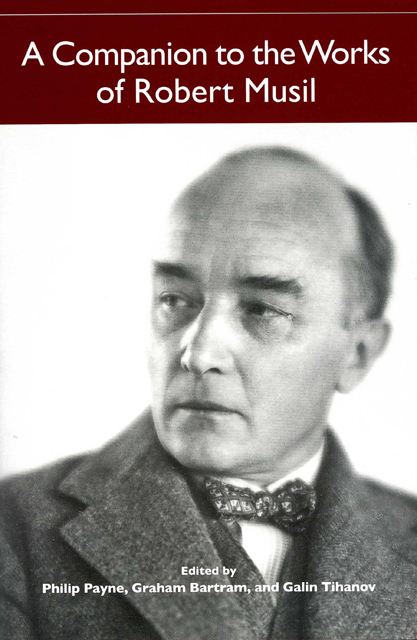Book contents
- Frontmatter
- Dedication
- Contents
- Preface
- Acknowledgments
- List of Abbreviations
- Musil's Principal Works
- Miscellaneous Frontmatter
- Introduction The Symbiosis of Robert Musil's Life and Works
- Musil's Life: Experiences, Reflections, Emotions of an Intellectual
- Literary Works before Der Mann ohne Eigenschaften
- Perspectives on Der Mann ohne Eigenschaften
- Select Bibliography
- Robert Musil's Life: A Chronology
- Notes on the Contributors
- Index
3 - Robert Musil in the Garden of Conservatism
Published online by Cambridge University Press: 15 March 2023
- Frontmatter
- Dedication
- Contents
- Preface
- Acknowledgments
- List of Abbreviations
- Musil's Principal Works
- Miscellaneous Frontmatter
- Introduction The Symbiosis of Robert Musil's Life and Works
- Musil's Life: Experiences, Reflections, Emotions of an Intellectual
- Literary Works before Der Mann ohne Eigenschaften
- Perspectives on Der Mann ohne Eigenschaften
- Select Bibliography
- Robert Musil's Life: A Chronology
- Notes on the Contributors
- Index
Summary
When it comes to politics, Robert Musil's biography was marked by ambiguities, vacillations, and perhaps a deeper sense of aloofness, irony, and a refusal to serve, or feel bound by, any particular cause. His stance, or lack thereof, echoed the dispositions of a man with evident qualities but without strong commitments. His sympathy for socialism did not last, nor did his early local activism in Brno. Musil was, in the words of Bruno Fürst, “equally averse to fascism and democracy” (Corino, 1245); he was under no illusion regarding the intellectual poverty of Nazism and resolutely rejected its racism, and yet his estimate of Hitler was on occasion sympathetic and admiring, if not consistently enthusiastic (T, 970; 986; 1007; Corino, 1355; 1357; 1372). In a fragment of 1913 he described himself — with some self-irony yet not flippantly — as a “conservative anarchist” (GW II, 1011: ein konservativer Anarchist war ich); as he abandoned that anarchic disposition, he registered support for the principle of social “Steuerung” (steering) and in the end came to justify, in no uncertain terms, the contempt of National Socialism for “die ungeführte Masse” (T, 726: the unguided mass). To his friend Wolfgang Schwerin,Musil explained that he was neither Jewish nor politically active against the Nazis: “Ich sitze zwischen allen Stühlen” (I am in neither camp; quoted in Corino, 1400). If there was indeed a core principle governing his career, it was the disbelief in writers and politicians making good bedfellows. Acts that in someone else's hands could have looked like pronounced political involvement, such as his speech at the Paris Congress for the Defense of Culture (1935) or his move to Switzerland, left many a contemporary either puzzled or unimpressed. The Left was clearly disappointed by his rejection of immediate political goals in the Paris speech (cf. Corino, 1190–94). Musil was considered almost a saboteur, behaving as a guest who impolitely, even arrogantly, descended upon a party to tell his hosts the unpleasant truth that art cannot and should not be organized, not even with the loftiest antifascist intentions in mind.
- Type
- Chapter
- Information
- A Companion to the Works of Robert Musil , pp. 117 - 148Publisher: Boydell & BrewerPrint publication year: 2010
- 2
- Cited by

